
In all my years doing research at the National Archives, I had never cried. That day in fall 2012, I had simply planned to examine documentary material that might help determine how the yet-to-be-built National Museum of African American History and Culture would explore and present the complicated history of American slavery and freedom.
As I read through the papers of the Bureau of Refugees, Freedmen, and Abandoned Lands—the Freedmen’s Bureau, as it’s usually called—I decided to see if I could find records from Wake County, North Carolina, where I knew some of my own enslaved ancestors had lived. I had few expectations because I knew so little about my family’s history. From a surviving wedding certificate for my paternal great-grandparents, I’d gotten the name of my earliest-known family member, an enslaved woman named Candis Bunch, my great-great- grandmother. But scrolling through rolls of microfilmed documents from the Raleigh office of the Freedmen’s Bureau, I realized the chances were remote that I would find my ancestor.
But when I turned my attention to a series of labor contracts— designed to give the newly freed some legal protections as they negotiated working relation ships with their former enslavers— I found a single page documenting a contract between Fabius H. Perry, who owned the plantation next to the one where my ancestors had been enslaved, and Candis Bunch. That page not only filled a void in my knowledge of my family’s history, but also enriched my understanding of myself.
Diese Geschichte stammt aus der December 2023-Ausgabe von The Atlantic.
Starten Sie Ihre 7-tägige kostenlose Testversion von Magzter GOLD, um auf Tausende kuratierte Premium-Storys sowie über 8.000 Zeitschriften und Zeitungen zuzugreifen.
Bereits Abonnent ? Anmelden
Diese Geschichte stammt aus der December 2023-Ausgabe von The Atlantic.
Starten Sie Ihre 7-tägige kostenlose Testversion von Magzter GOLD, um auf Tausende kuratierte Premium-Storys sowie über 8.000 Zeitschriften und Zeitungen zuzugreifen.
Bereits Abonnent? Anmelden
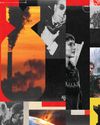
Apocalypse, Constantly
Humans love to imagine their own demise.

A Palestinian American Sex and the City
Betty Shamieh's debut novel is a rebellious rom-com.
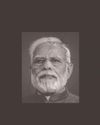
Modi's Failure
Why India is losing faith in its strongman leader
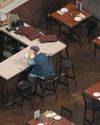
The Anti-Social Century
Americans are now spending more time alone than ever. It's changing our personalities, our politics, and even our relationship to reality.
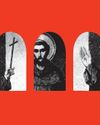
The Wild Charity of Saint Francis
The guide we need, now that kindness is countercultural
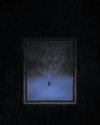
Where Han Kang's Nightmares Come From
In her novels, the South Korean Nobel laureate returns again and again to her countrys bloody past.
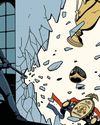
TROPHY HUNTERS
A GROUP OF CHILDHOOD FRIENDS PULLED OFF A STRING OF THE MOST AUDACIOUS SPORTS-MEMORABILIA HEISTS IN AMERICAN HISTORY. THEN THEY DID SOMETHING REALLY CRAZY.
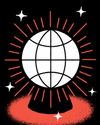
THE NEW RASPUTINS
Anti-science mysticism is enabling autocracy around the globe.
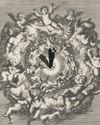
ARMY OF GOD
AMERICAN CHRISTIANS ARE EMBRACING A CHARISMATIC MOVEMENT KNOWN AS THE NEW APOSTOLIC REFORMATION, WHICH SEEKS TO DESTROY THE SECULAR STATE. Now THEIR WAR BEGINS.

WHAT NOT TO WEAR
The false promise of seasonal-color analysis